PRAGUE AND CZECH REPUBLIC: a travel guide for music fans
Visit destinations for classical music and opera art with a historical connection. Get to know exciting ideas and background information
0
OVERVIEW MAP
Here you can find the locations of all described destinations on Google Maps.
0
1
LIFE AND WORK OF ARTISTS IN PRAGUE AND CZECH REPUBLIC
Three famous Czech musicians, plus Wagner and Mozart stand out.
1
2
CONCERT HALLS AND OPERA HOUSES
Prague offers a rich musical experience in historic houses
2
3
MUSEUMS
Prague offers three interesting musicians’ museums
3
4
MONUMENTS
Smetana and Dvořák were memorialized
4
5
GRAVES AND GRAVESITES OF FAMOUS MUSICIANS
Smetana and Dvořák rest in Vyšehrad cemetery of honor.
5
6
HOTELS AND MISCELLANEOUS
Two beautiful hotels in Prague an interesting walk in Brno and a romantic castle in Strekow invite you
6
7
WORKS RELATING TO PRAGUE AND CZECH REPUBLIC
Listen to a work by Smetana and one by Mozart
7
MAP OF THE DESTINATIONS OF THE TRAVEL GUIDE REGION PRAGUE AND CZECH REPUBLIC
Zoom in for destinations in Czech Republic:
LIFE AND WORK OF COMPOSERS IN IN PRAG and CZECH REPUBLIC
Bedřich Smetana
Acquaintance with Liszt
The Bohemian composer was born Friedrich Smetana in the Bohemian province in 1824. Educated in the German language in the tradition of the time, he did not learn the Czech language until he was an adult. His musical awakening, however, came as a teenager in Prague, when he heard Franz Liszt, with whom he later became friends. In his young adult years, he wrote minor works and he earned a living as a music teacher, partly as an employee of the court. In 1856, he left for Gothenburg with his wife and children because he was unhappy with the autocratic government in his homeland. Within a few years, two children died, and on the return trip from Gothenburg in 1859, his wife died of tuberculosis.
A life full of conflict
In 1860, the “Bartered Bride” was performed with good success at the Prague Interim Theater, the forerunner of the National Theater, where Smetana held the post of Kapellmeister. He actually wanted to become director of the theater, but because he was a supporter of the New Germans around Liszt and Wagner, he was denied. This feud dragged on during his tenure with many intrigues and quarrels, which ruined Smetana’s health. A tinnitus (according to him, an A-flat major sex chord) made itself felt and by 1873 Smetana was completely deaf and he retired from his post. Nevertheless, in the following years he composed his best-known work, “Ma Vlast” (“My Fatherland”). He wrote it in the countryside, where he had moved out with his second wife and children to live with his sister. The first piece of this 6-part cycle is called Vyšehrad, it is about the castle on the Vltava River, at the foot of which he was buried 10 years later.
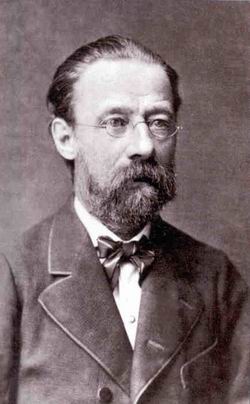
Antonin Dvořák
Late discovery by Brahms
Born in 1841 in rural Bohemia, Prague became the center of his life from the beginning of his music studies in 1857. For 20 years he lived in the Czech capital as a mouse-poor student and orchestral musician. Alongside this, he composed smaller works, but it was not until he received a scholarship in 1874 that he was able to devote sufficient time to larger works.
In 1877 the breakthrough came with the honorable mentions first by the famous critic Hanslick and then mainly by the encouragement of Johannes Brahms. However, it was also during this period that the tragedies of the two child deaths occurred, which shook him while he was working on the Stabat Mater.
Triumph in the USA
In the 80’s concert tours to England helped him to prosperity and in the beginning of the 90’s the 2-year stay in the USA took place with the acclaimed premiere of his 9th symphony in New York, which helped him to fame. Dvořák died in Prague in 1904.
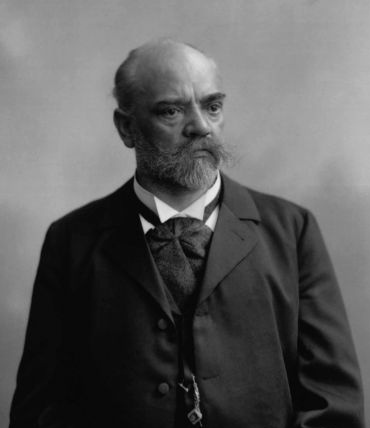
Leos Janáček
Life focus in Brno
Janáček kam als Jugendlicher ins mährische Brünn. Nach einem kurzen Musik-Studium in Prag liess er sich im Brünn nieder. Er heiratete eine ehemalige Klavierschülerin und wurde Leiter einer Musikschule. Er komponierte neben seinem Beruf, sein erstes Meisterwerk, die Oper «Jenufa», begann er 1894, beendete es aber erst 1904 mit einer Uraufführung im Nationaltheater Brünn. Es blieb aber weitgehend unbeachtet, erst eine 1916er Fassung machte das Werk (zusammen mit einem Aufsatz Max Brods in Deutschland) bekannt und der mittlerweile 62-jährige bekam zum ersten Mal breitere Aufmerksamkeit.
Late breakthrough as 62-year-old in Prague
Janáček spent his artistically active life in Prague. Nevertheless, Prague was fateful for his career in 1916. Finally, after an agonizingly long 12 years, Prague decided to perform “Jenufa,” which had already premiered in Brno in 1904. Although some changes were made to the work, thanks to the performance and an article by Max Brod published in Germany, the work became famous and Janáček, at the age of 62, became known to a wider public for the first time.
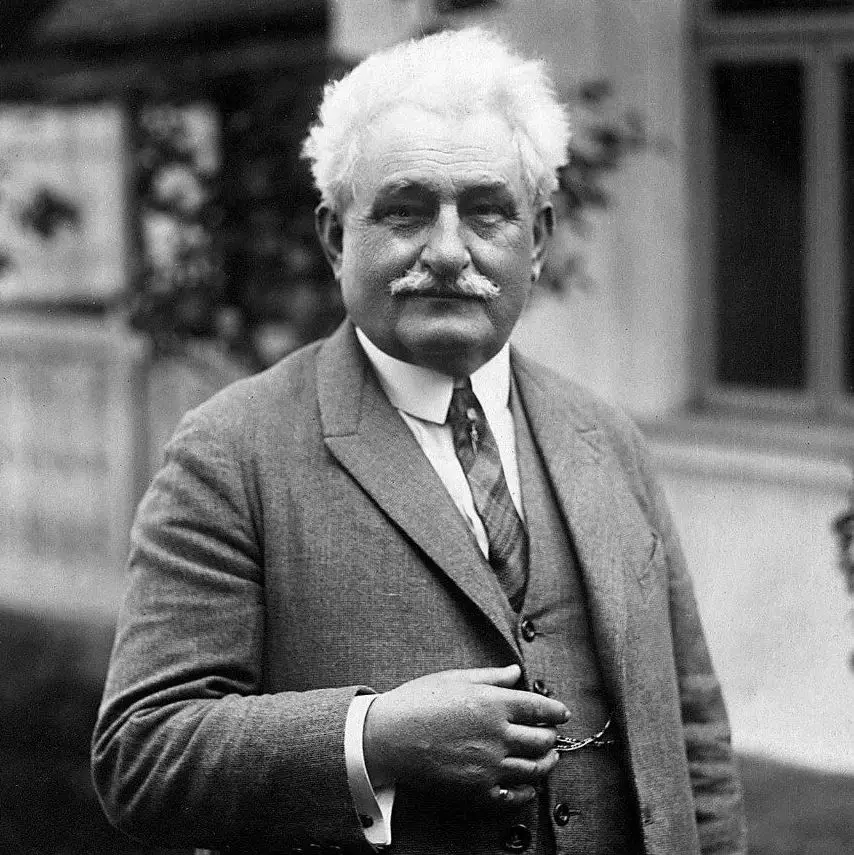
Wolfgang Amadeus Mozart
A star in Prague
Mozart was the acclaimed star in Prague, something he had never been granted in Vienna. He felt understood and enjoyed his triumphs and composed many famous pieces, such as Don Giovanni (in collaboration with Da Ponte) for the Bohemian capital. He visited Prague five times, most recently in the year of his death for the premiere of “Clemenza di Tito.”
TO THE COMPLETE MOZART BIOGRAPHY
Richard Wagner
A childhood love in Prague
At the age of thirteen, Wagner lived in Dresden and visited Prague and fell unhappily in love with the daughter of a music-loving nobleman and acquaintance of the family, where he was allowed to live. A year later he came once again on foot from Dresden because he had no money for transportation. Two more times he visited the Pachtas later, each time accompanied by his wife. This palace still exists and the beautiful romantic courtyard still charms today. The building is occupied by the beautiful boutique hotel Smetana.
Wagner visited Bohemia, today’s Czech Republic, a dozen times, including the capital Prague several times. In his memoirs he wrote: “Above all, the ancient splendor and beauty of the incomparable city of Prague made an indelible impression on my imagination.”
On traces of the Middle Ages at the castle Strekow
Wagner besuchte Teplitz in seinen jüngeren Jahren mehrmals. Besonders bedeutsam waren die beiden Reisen 1842 und 1843, die er vom 50 Kilometer entfernten Dresden aus unternahm, wo er seit kurzem zum Kapellmeister ernannt worden war. Die Gegend scheint seine Phantasie angeregt zu haben, er arbeitete dort verschiedentlich an seinen Opern. Besonders die nahe Burg Schreckenstein beflügelte seine Imagination für die Schöpfung seines «Tannhäusers».
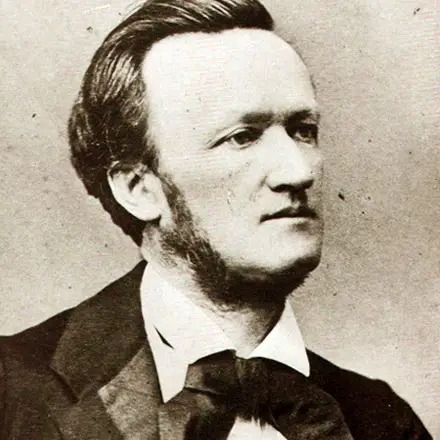
LINK TO THE COMPLETE WAGNER BIOGRAPHY
CONCERT HALLS AND OPERA HOUSES
National theater (narodni-divadlo) Prague
The construction of the Czech National Theater was a national act, financed by donations from all over the country. The laying of the foundation stone was attended by 100,000 people, but it took an agonizing 13 years before it was opened in 1883, shortly before completion a fire raged. It is the most important musical theater in Czechoslovakia.
National theater Prague:
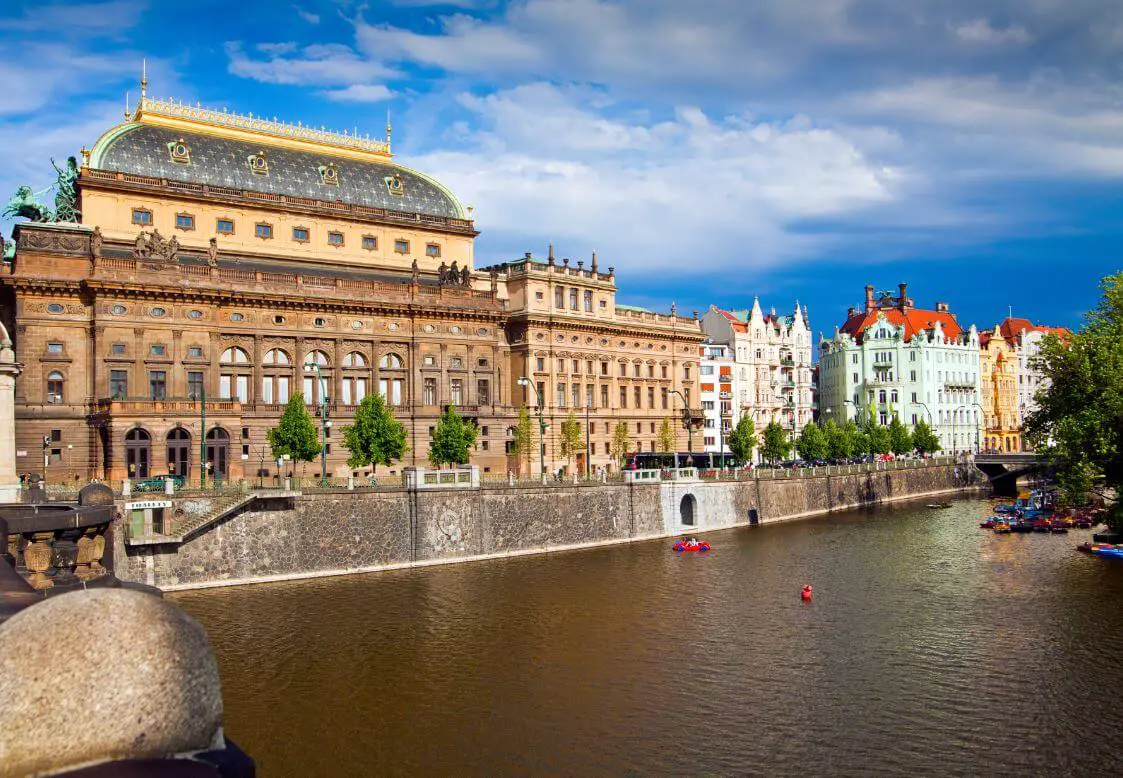
The premiere of the opera “Rusalka” (next to the “Bartered Bride” the most famous Czech opera) was perhaps the most glamorous moment of this house, which saw the light of day in this theater in 1901 to great acclaim. Listen to the most famous piece from this opera, the Moon Aria sung by Anna Netrebko:
https://www.youtube.com/watch?v=MwuNqcKUxto
The premiere of his 8th Symphony had taken place in this theater 11 years earlier.
Rudolfinum Prague
In this concert hall Dvořák conducted the first performance of the newly founded Czech Philharmonic Orchestra, which originally consisted of the musicians of the National Theater. The building served as a parliament building for a few years and also houses an art museum. The large hall is named after Dvořák. The Rudolfinum features high quality classical music.
Dvořák hall:
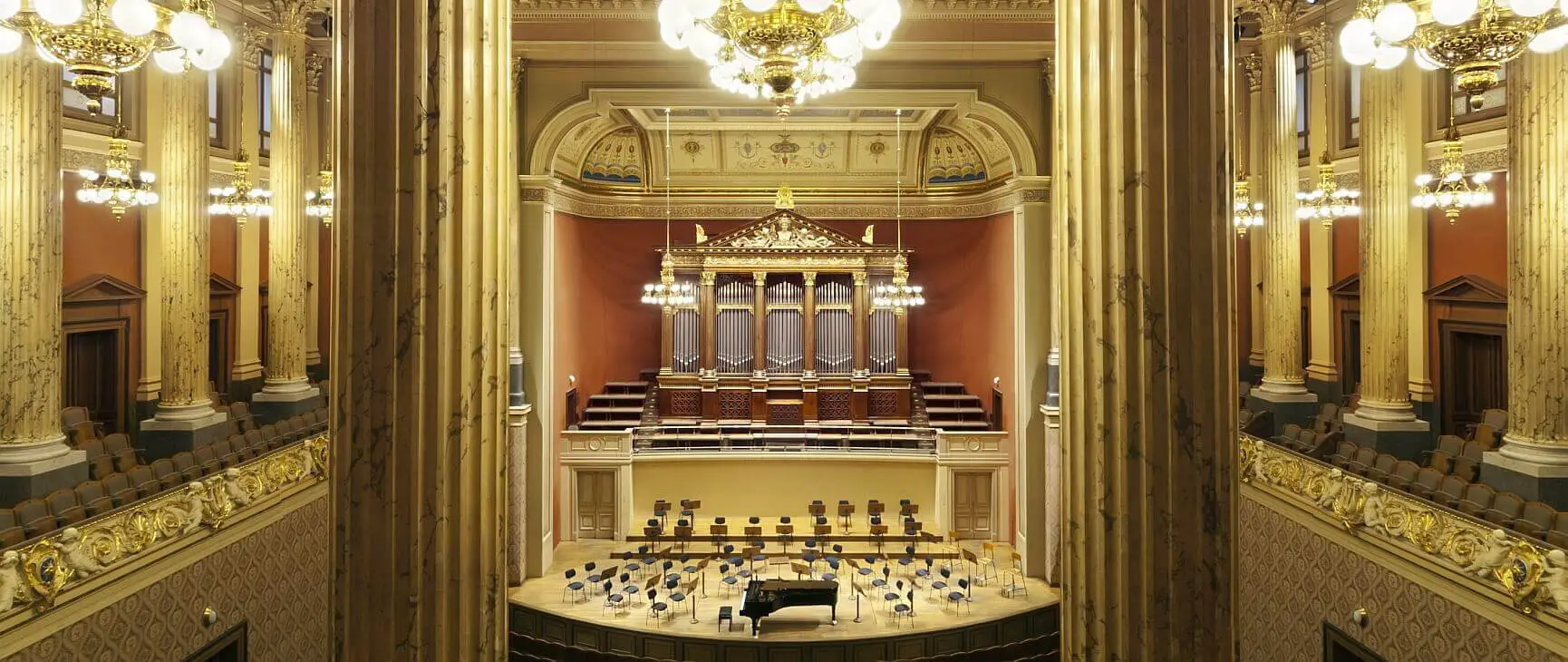
Prague State Opera
The theater opened in 1888 as the “Neues Deutsches Theater,” financed by German industrialists (not to be confused with the Estates Theater). Artistically it was run by Angelo Neumann, a great Wagner devotee, opening with the “Meistersinger”. Today, as the State Opera, it belongs to the public theaters. The building has been renovated and reopened gloriously in 2020. Tours are made possible.
State Opera:
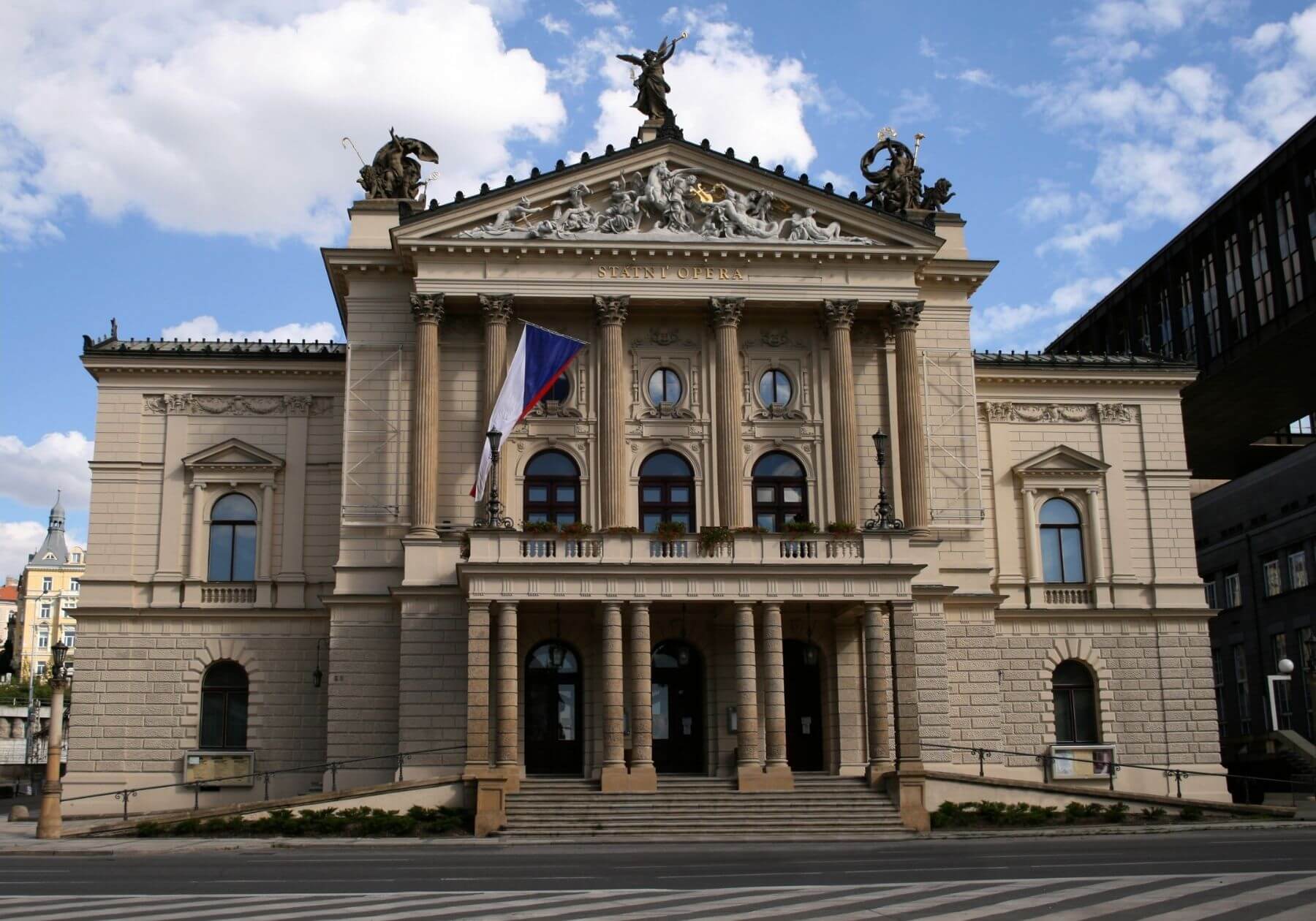
Prague Estates theater (Stavovské divadlo)
Where Mozart celebrated his triumphs
In 1887 Mozart celebrated one of the greatest triumphs of his career at the Estates Theatre with the premiere of Don Giovanni. The jubilation knew no bounds when the curtain fell. As with the Nozze di figaro, the Prague audience loved him. The “Clemenza di Tito” also premiered in the Estates Theater, was well received, but the empress is said to have dismissed the work as a “German mess”.
The theater has been preserved almost in its original state and can be experienced with performances and tours. It is now part of the National Theater complex.
https://www.narodni-divadlo.cz/en
Estates theater around 1830:
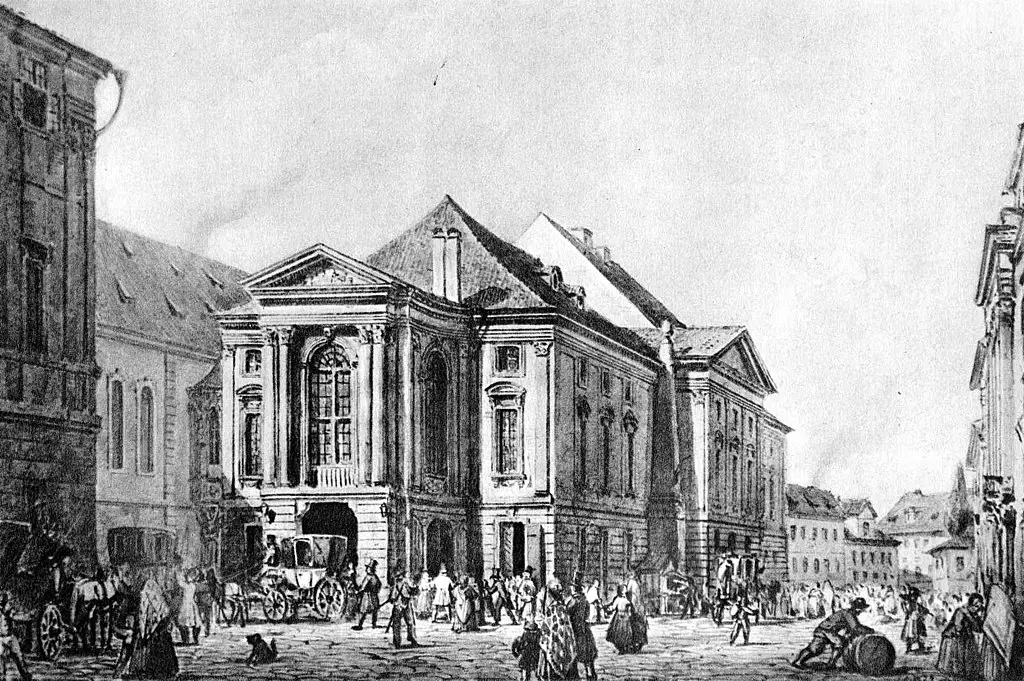
Estates theater today:
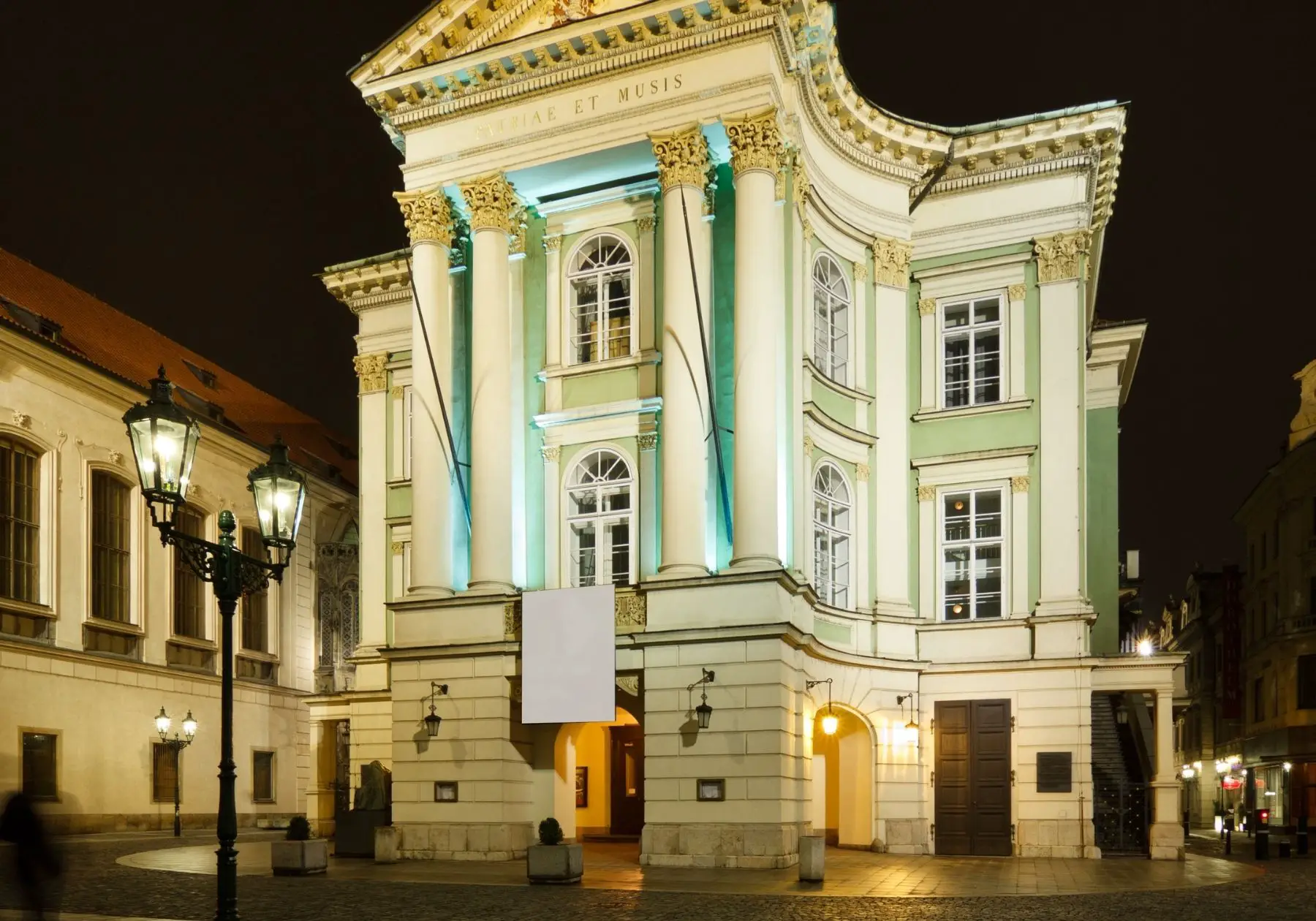
Mahen Theater (former National theater)
The place of the first performance of Janacek’s operas
This beautiful theater, opened in 1878, was the scene of the first performances of Janacek’s operas and was then called the National Theater. The interior of the theater and the marble staircase are especially beautiful.
The theater became the first fully electrically lit theater on the European continent. An Edison light bulb from 1882 was therefore placed in a decorative copper case set into the last stone. (Today it is displayed in a glass case next to the main staircase). Edison himself visited Brno in 1911. (Source: Theater website).
The theater offers a high quality opera program.
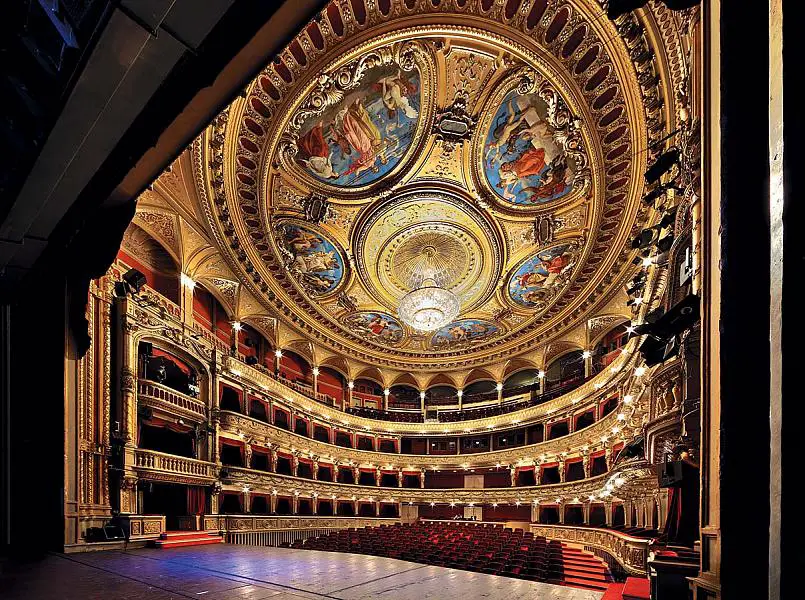
MUSEUMS
Smetana Museum
For Smetana fans, a museum was established in his honor. At the end of Novotného lávka, in front of the Museum of Bedřich Smetana, a monument to the composer was unveiled in 1984.
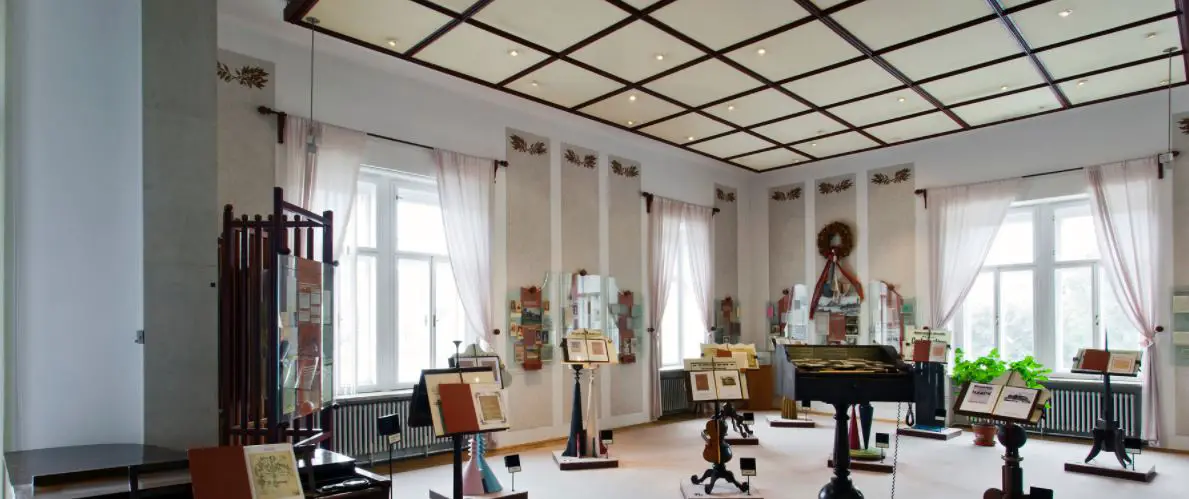
Dvořák Museum
This small museum, just outside the center of Prague, is housed in a beautiful villa and brings the life and work of the composer closer.
Dvorak Museum:
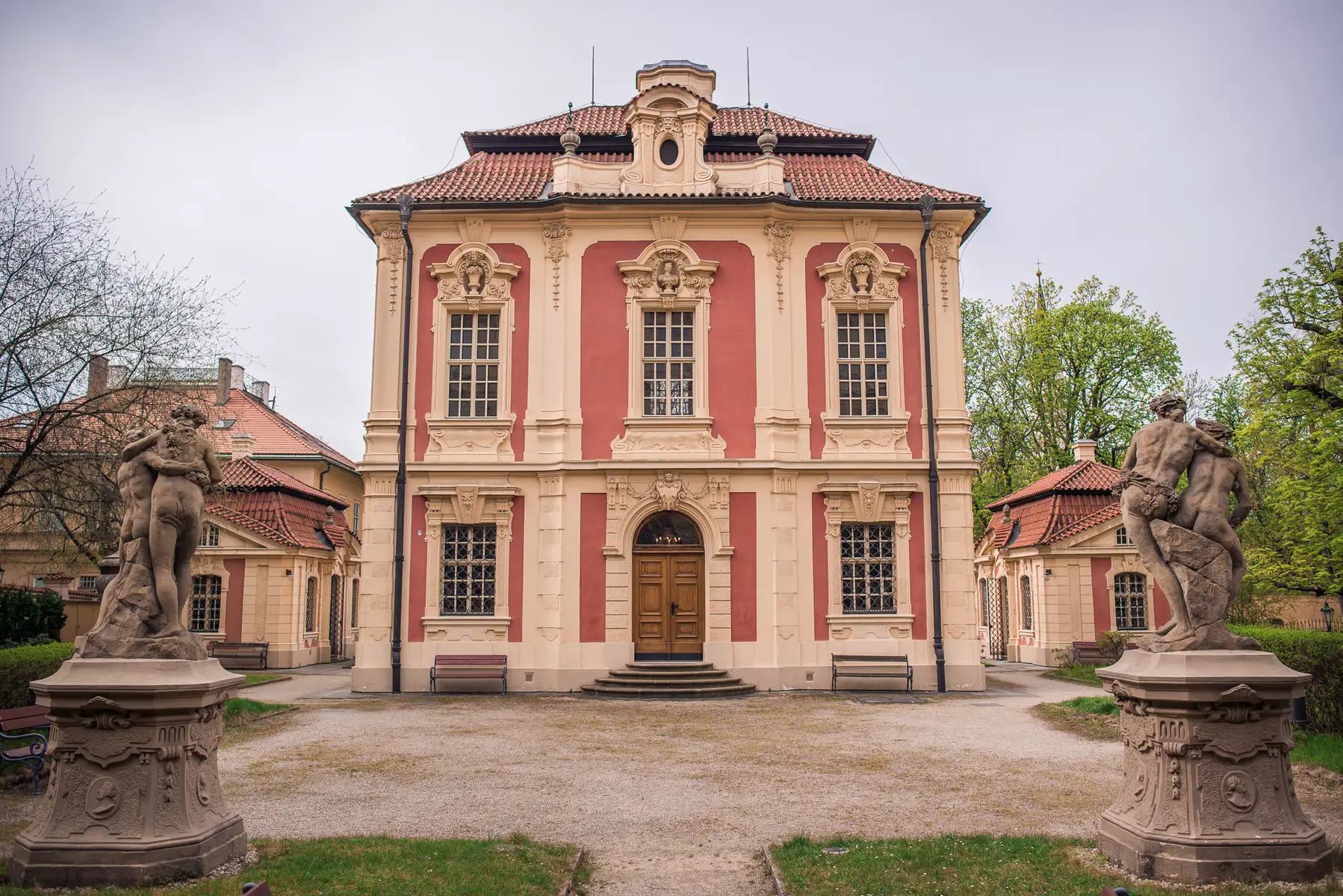
Janáček memorial place
His house (from 1910) and the attached music school form the memorial of the Moravian composer. The house is in original condition, the study and his piano where he wrote his most important works after 1910 are part of the tour.
Janacek’s study:
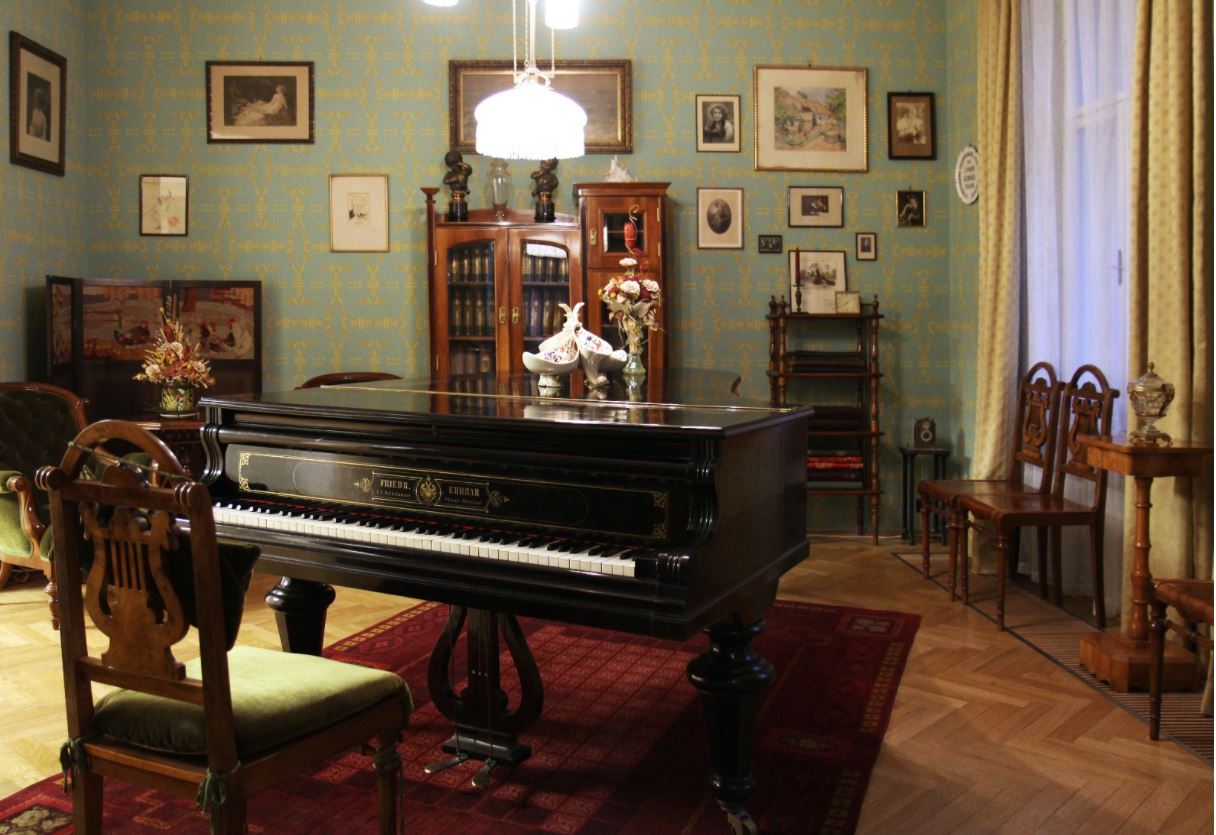
Mozart memorial place Betramka (might still be closed)
Mozart was the acclaimed star in Prague, something he had never been granted in Vienna. He felt understood by the czech inhabitants and enjoyed his triumphs and composed many famous pieces, such as “Don Giovanni” for the Bohemian capital. He visited Prague five times, most recently in the year of his death for the premiere of “Clemenza di Tito.”
Betramka in Prague:
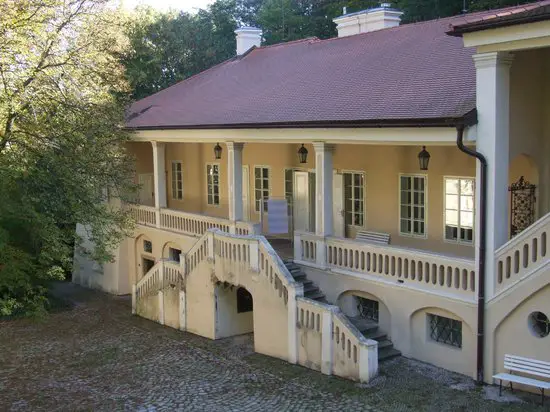
MONUMENTS
Smetana monument Prag
At the end of Novotného lávka, in front of the Museum of Bedřich Smetana, a monument to the composer was unveiled in 1984.
Smetana monument:
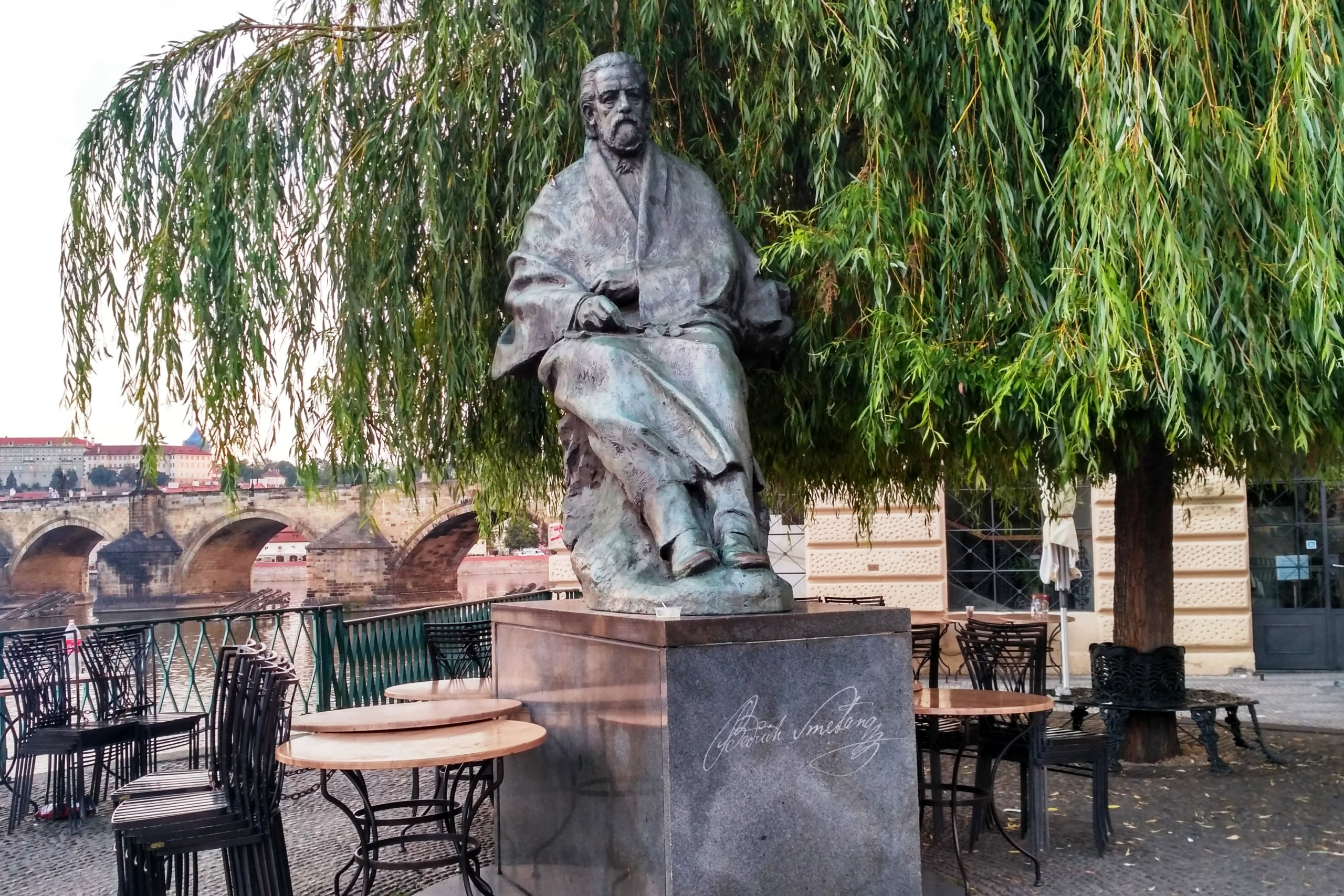
https://www.nm.cz/en/visit-us/buildings/bedrich-smetana-museum
Dvořák Statue
The bronze statue of Dvořák stands imposingly in front of the beautiful Rudolfinum Concert House.
Dvořák monument in front of Rudolfinum:
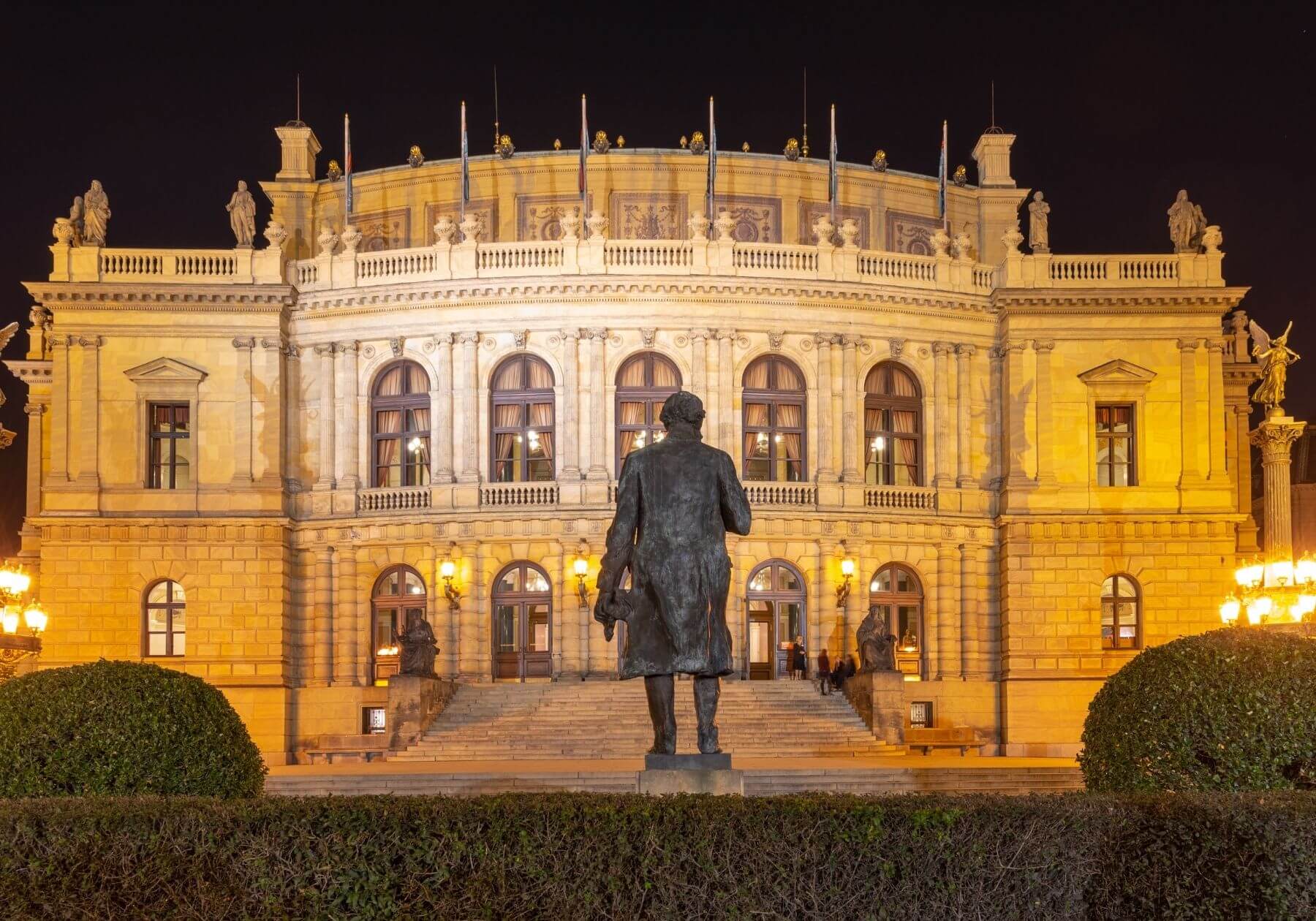
GRAVES AND GRAVESITES
Bedrich Smetana
Cemetery Vyšehrad
Smetana was buried in this cemetery on the grounds of the castle. His physical and mental health deteriorated in the last years of his life and he had to be admitted to a psychiatric hospital, where he died.
Smetana’s Tomb:
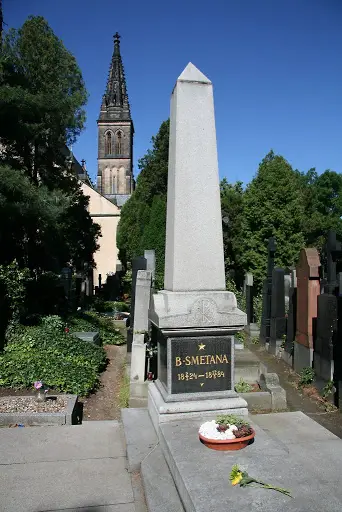
Antoin Dvořák
Cemetery Vyšehrad
Dvorak was buried in this cemetery on the grounds of the castle, thousands of people accompanied the body on the way to the cemetery.
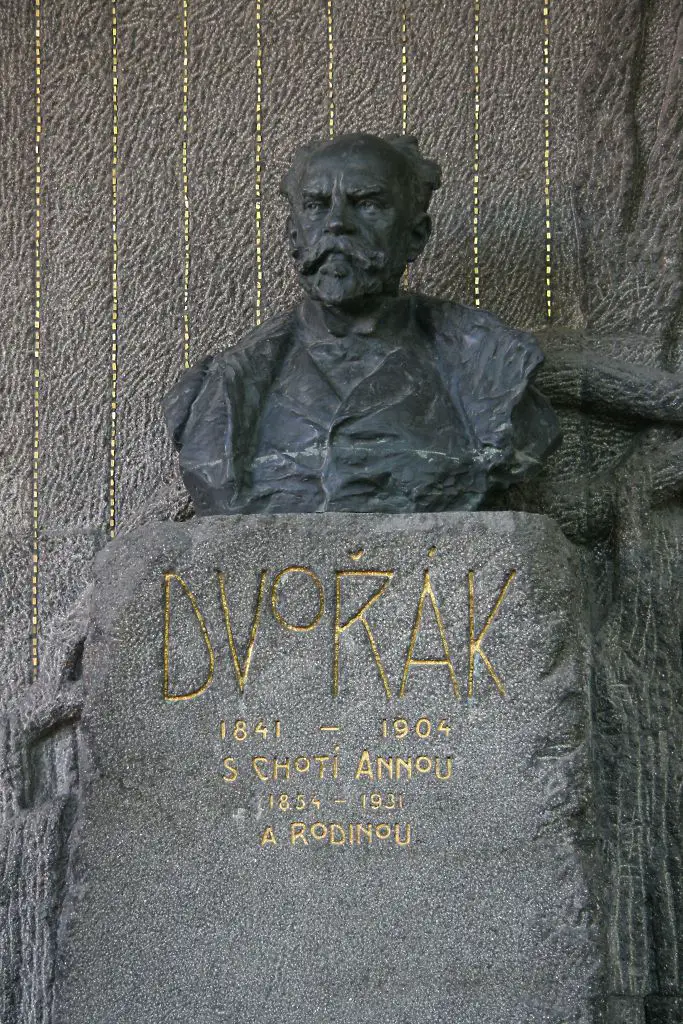
HOTELS AND MISCELLANEOUS
Hotel & Café Imperial Prague
A beautiful Hotel
It was here in this beautiful Art Nouveau hotel, built in 1914, that Janáček descended during his visits to Prague. Franz Kafka was also a regular visitor to the beautiful Café Imperial (Na Poříčí 15, Prague 1).
Restaurant Hotel Imperial:
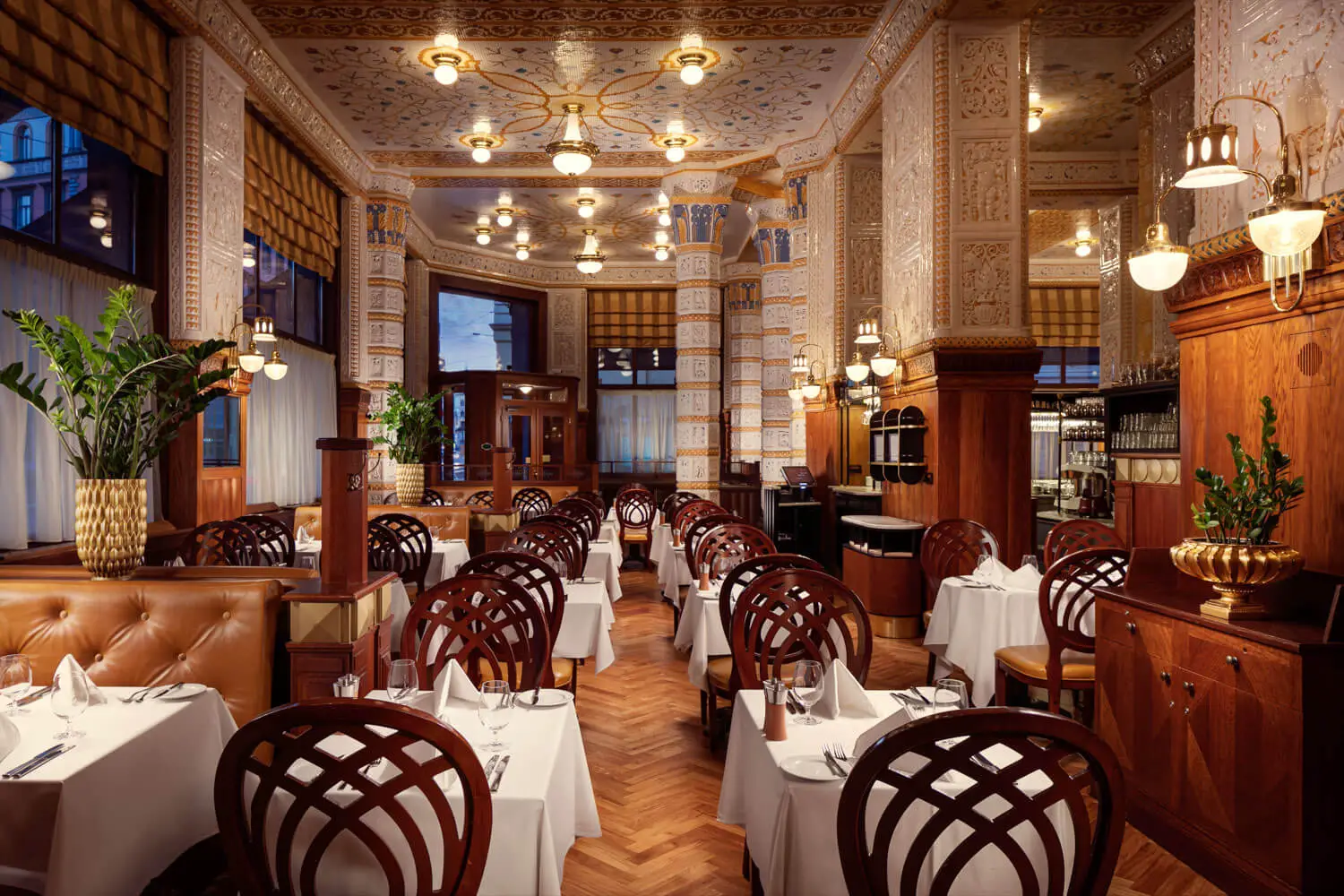
Palais Pachta (Smetana Hotel)
At the age of thirteen, Wagner visited Prague and fell unhappily in love with the daughter of a music-loving nobleman and acquaintance of the family, where he was allowed to live. A year later he came once again on foot from Dresden because he had no money for transportation. Two more times he visited the Pachtas later, each time accompanied by his wife. This palace still exists and the beautiful romantic courtyard still charms today. The building is occupied by the beautiful boutique hotel Smetana.
Palais Pachta (historic picture):
Smetana Hotel:
Janáček walk
A website (currently only available in Czech and German) is available on the Internet with a path through Brno in the footsteps of Janacek:
https://www.leosjanacek.eu/de/pfad/
Historic Brno:
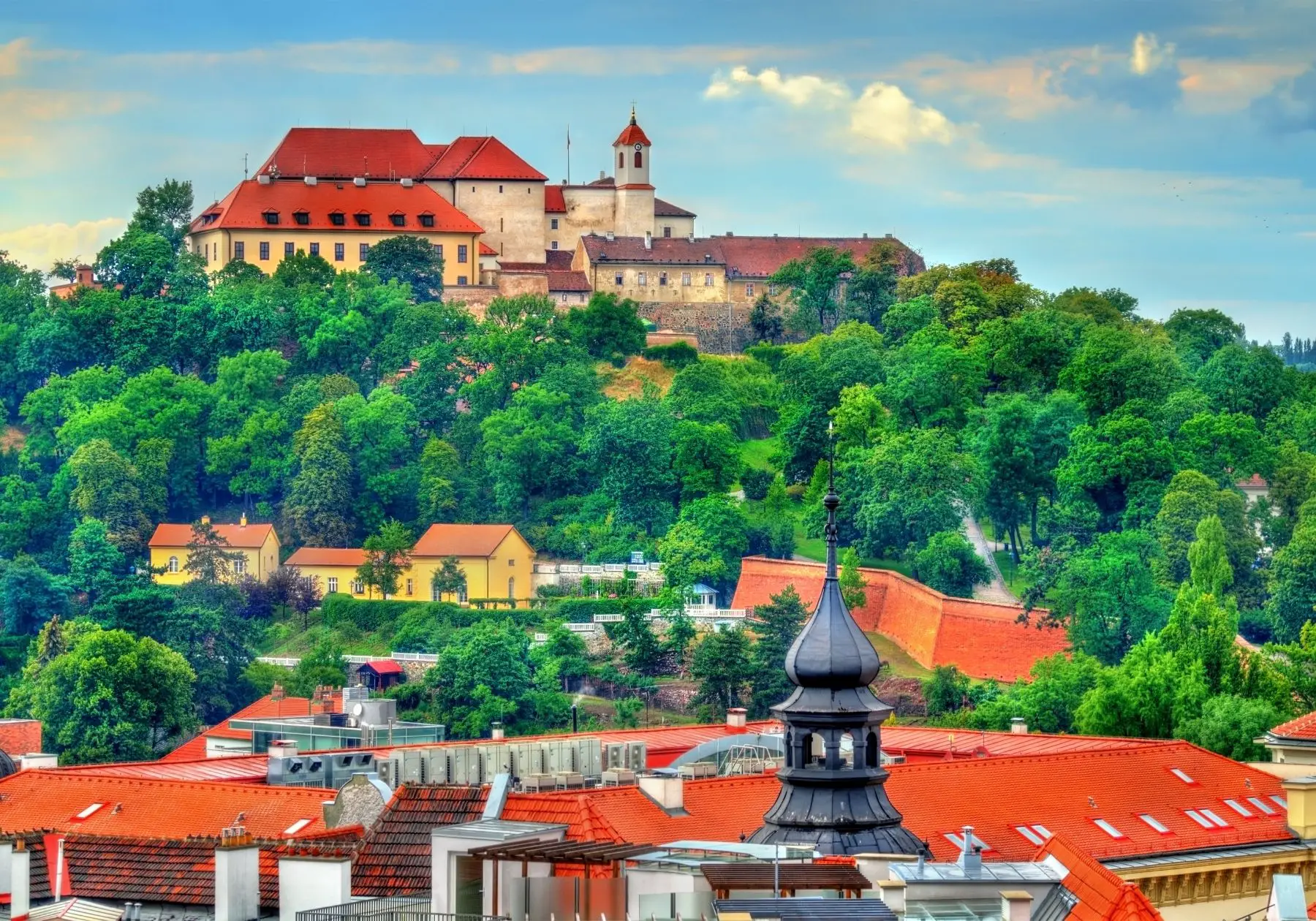
Strekov Castle
A picturesque castle
This castle sits picturesquely on a rock above the Elbe. Many painters, such as Caspar David Friedrich, stayed at the castle.
Inspiration for Richard Wagner
When Wagner saw the castle, he was working on Tannhäuser and was thrilled. In his memoirs he later reported: “For this I was attracted to the so romantically situated castle Strekow, where I took my quarters for several days in the small guest room, in which a strawbed was prepared for me at night. Daily ascents of the Wostrai, the highest peak in the area, refreshed me, and the fantastic solitude revived my youthful courage in such a way that one moonlit night, wrapped in a bare sheet, I climbed around on the ruins of the Schreckenstein, thus becoming a missing ghostly apparition for myself, whereby the thought of being perceived with horror by someone delighted me. Here I wrote down in my pocket book the detailed plan for a three-act opera “The Venus Mountain”, to which I later completely faithfully executed the poem.
Today, a commemorative plaque at the castle entrance commemorates this memorable stay.
Great view from the restaurant over the Elbe. The whole complex is closed in the winter season.
Strekov Castle:
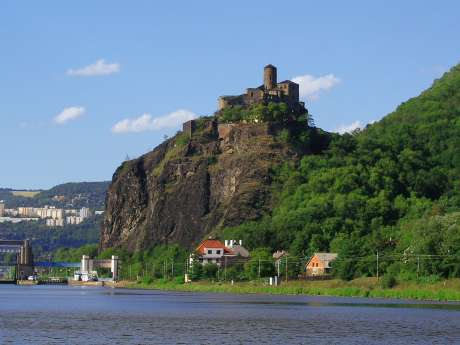
WORKS RELATING TO PRAGUE AND CZECH REPUBLIC
Vyšehrad by Bedrich Smetana
Vyšehrad is a castle with a rampart on the Danube near Budapest. In his cycle “Ma vlast” Smetana not only set a monument to the Danube but also to this place. There is also Prague’s cemetery of honor, where Smetana’s last resting place is located.
Don Giovanni in Prague
A high-ranking visitors at the premiere of “Don Giovanni” in Prague
In addition to the literary figure of Don Juan, at the time of the composition of Don Giovanni there existed a legendary seducer of women: Giacomo Casanova. At the time of the composition he was already over 60 years old and retired. He was friends with da Ponte. Casanova visited Da Ponte and Mozart during the preparations for the opera in Prague and was present at the first performance. Apparently he gave advice on the libretto, but it is unclear whether Da Ponte took it into account.
With Casanova and Don Giovanni at the Estates Theater, this was a true summit meeting of seducers. In your honor, you will find a link to Don Giovanni’s showpiece. His champagne aria is an exuberant piece in which he feverishly gives Leporello instructions for the evening at breathtaking speed. Leporello is supposed to organize a party with music and dance and ensure that everyone is drunk so that Don Giovanni can pursue his favourite activity. 12 new conquests should be on the list by the next day. Don Giovanni is a murderer and a seducer, but he also has a great appetite for life, which Mozart has inimitably composed with the forward pulse of music and the fast notes. When listening to the aria it is not possible for us to detest him.




Leave a Reply
Want to join the discussion?Feel free to contribute!